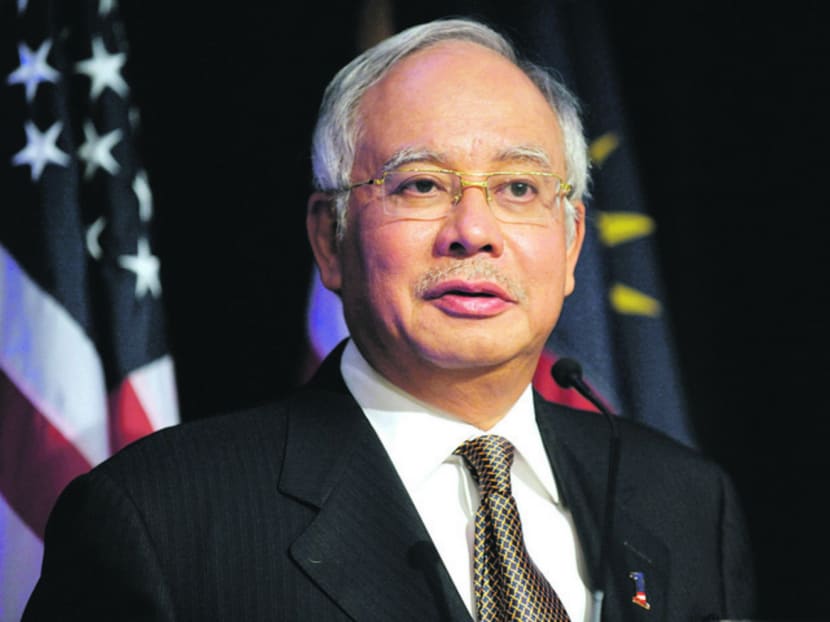Sedition Act needed to curb terror threat: Najib
KUALA LUMPUR — Malaysian Prime Minister Najib Razak yesterday put up a stout defence of his government’s decision to retain the Sedition Act, amid criticism that the colonial-era law is being abused to clamp down on dissenters.
KUALA LUMPUR — Malaysian Prime Minister Najib Razak yesterday put up a stout defence of his government’s decision to retain the Sedition Act, amid criticism that the colonial-era law is being abused to clamp down on dissenters.
Mr Najib said the 1948 law was needed to maintain social order, especially with the advent of social media, where anyone is free to make public comments that could spark racial and religious strife.
“We are concerned that such things could fuel emotional reactions. We care about racial and religious cohesion; that is why we will try to strengthen the Sedition Act,” he said in a speech to a gathering of the 208th Royal Malaysian Police force.
Mr Najib also said the threat of terrorism made the Act a necessity.
“As the saying goes in English, ‘prevention is better than cure’. I believe that it is better for us to have preventive detention laws than having someone commit an act of terror. If terrorism were to happen, many lives may be sacrificed,” Mr Najib said, adding there was no reason for the government to apologise for using the Sedition Act, despite domestic and international criticism.
The Najib administration has been widely condemned for a spate of recent arrests of opposition lawmakers and activists who accuse the Prime Minister of reneging on his promise to repeal the law and improve civil liberties.
The high-profile application of the Sedition Act by Inspector-General of Police Khalid Abu Bakar following its retention has prompted further scrutiny, both at home and abroad, over Mr Najib’s decision to keep the colonial-era law.
An active user of Twitter, Mr Khalid regularly uses the social network to order the police to investigate individuals or groups under the law. However, his public directives have drawn allegations of selective action to target government critics such as activists and opposition lawmakers.
The Sedition Act was also used last week to arrest Member of Parliament Nurul Izzah Anwar over a speech she read on behalf of her father, jailed opposition leader Anwar Ibrahim in Parliament, prompting concern by opposition lawmakers that they will be muzzled even within the confines of the lower house.
Mr Naijb had pledged in 2012 to repeal the Sedition Act as part of his legal reforms, but announced during the United Malay National Organisation (UMNO) general assembly last year that the law will be retained and further expanded.
“We should not be apologetic,” Mr Najib said yesterday. “Some may say this is not democratic, this (violates) rights to freedom, and more, but I want to say that there is no absolute freedom. There is no place for absolute freedom without responsibility in this country.”
He also gave his assurance that the Prevention of Terrorism Act — a new law to eradicate terrorism in Malaysia that will be tabled in Parliament soon — would not be used for political purposes.
Mr Najib added that the executive arm of the government would have no say in whether to detain an individual under the new Act.
“The government has no intention of using the new Act for political purposes. That is why the power to detain is not placed under members of the administration,” he said.
“We will place it under a credible body so that only those truly involved in terrorism can be detained under the new act. That way we can guarantee Malaysia will continue to be safe.” AGENCIES







